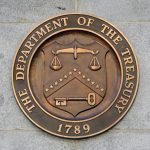
The fate of a $15 billion mega-merger between Japan’s Nippon Steel and US Steel hangs precariously in the balance, awaiting the decision of a US government panel reviewing the deal for potential national security risks.
This month, the Committee on Foreign Investment in the United States (CFIUS) will submit its recommendations, potentially shaping the global steel landscape and impacting thousands of American jobs.
Political headwinds and economic stakes
The proposed acquisition has faced significant political opposition.
President Joe Biden, his predecessor Donald Trump, and the influential United Steelworkers union have all publicly voiced concerns.
The White House confirmed on Tuesday that President Biden will await CFIUS’s recommendation before making a final decision on whether to block the deal, which, according to World Steel Association data, would create the world’s third-largest steelmaker, surpassed only by China’s Baowu Steel Group and ArcelorMittal.
This announcement followed a dip in US Steel’s share price triggered by a Bloomberg report suggesting the President’s intention to veto the merger.
The strategic importance of US Steel, a company instrumental in constructing iconic landmarks like the Empire State Building and supplying materials to Allied forces during World War II, is at the heart of these concerns.
CFIUS deliberations: a timeline of uncertainty
CFIUS has been meticulously reviewing the transaction for months.
In late August, Reuters reported that the committee notified both companies of associated risks, fueling speculation about the deal’s future.
Days later, reports surfaced indicating President Biden’s inclination to block the merger.
However, CFIUS extended its deliberations past the November 5th presidential election, pushing the critical decision into the present.
While an antitrust review is also pending, analysts predict this hurdle will be less significant than the national security assessment.
Despite these challenges, Nippon Steel has maintained its confidence in closing the deal by year-end.
Potential outcomes: approval, delay, or blockade
Several scenarios could unfold following CFIUS’s recommendation:
Approval: A positive recommendation would pave the way for the merger, potentially reshaping the global steel industry.
Delay: A further extension of the review would trigger a fresh 90-day assessment period, with implications extending into the Trump era.
Trump’s staunch opposition, evidenced by his “Buyer Beware!” post on Truth Social last week, casts a long shadow over the possibility of approval under a potential future administration.
Block: A negative recommendation would grant President Biden 15 days to issue an executive order formally blocking the deal.
This outcome carries severe consequences, with US Steel suggesting potential job losses and mill closures.
The United Steelworkers union, however, has dismissed these claims as intimidation tactics.
Nippon Steel has vowed to explore all available options, including legal challenges, should the merger be blocked.
What’s next? a future forged in steel and uncertainty
The upcoming CFIUS recommendation will undoubtedly shape the future of both Nippon Steel and US Steel.
The implications extend far beyond the two companies, potentially influencing the global steel market, national security considerations, and thousands of American jobs.
The next few weeks will be pivotal in determining the outcome of this high-stakes corporate drama.
The post Nippon Steel and US Steel: what comes after the $15 billion merger? appeared first on Invezz






